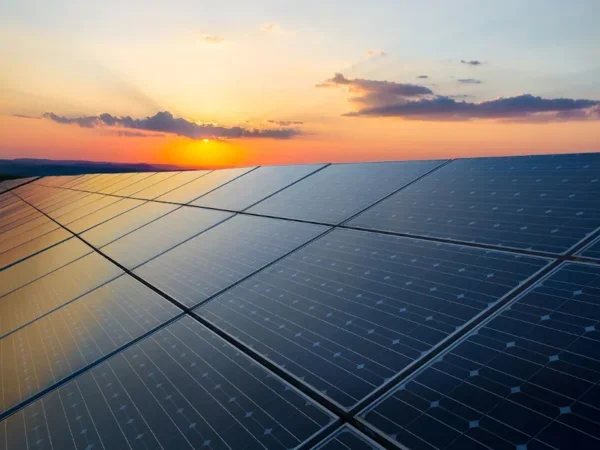If Africa is able to exploit its solar potential and produce 50 million tonnes of green hydrogen a year by 2035, the continent will be able to create jobs, decarbonise heavy industry, enhance global competitiveness and transform access to clean water and sustainable energy, a new report shows.
The ‘Africa’s Extraordinary Green Hydrogen Potential’ report, formally handed over to partners on December 20, was commissioned by the European Investment Bank (EIB), the International Solar Alliance and the African Union, with the support of the government of Mauritania, HyDeal and UCLG Africa.
The report combines analysis of investment opportunities focusing on three hubs – Mauritania to Morocco, Southern Africa and Egypt, with a roadmap of technical, economic, environmental and financial solutions to unlock commercial development.
The comprehensive analysis, carried out in recent weeks by international consultancy CVA, suggests that large-scale green hydrogen investment can accelerate decarbonisation by enabling large-scale African energy users, such as fertiliser and steel producers, to use green hydrogen.
The study highlights that green hydrogen is economically viable and can be produced at less than €2/kg – cheaper than traditional fossil fuel energy – and cater both for local energy demand and enable green hydrogen to be exported to global markets. This is equivalent to energy costs of $60/bl of oil.
The research suggests three requirements to enable 50-million tons of green hydrogen to be produced in Africa by 2035, including national planning, regulation and incentive schemes need to mobilise private sector investment; as well as pilot projects to show successful green hydrogen generation, storage, distribution and use at both demonstration and commercial scale.
Market-based partnerships are needed to enable mass-scale domestic and international offtake and demand for green hydrogen, and increase cooperation to design, finance, build and operate green hydrogen production, storage and distribution infrastructure.
The report suggests that €1-trillion green hydrogen investment can deliver the equivalent of more than one-third of Africa’s current energy consumption.
The study also outlines how production and transmission of green hydrogen can yield 7 EJ of energy (Africa consumed 19.9 EJ in 2021) and a correlative significant increase in gross domestic product, creating hundreds of thousands of permanent and skilled jobs across Africa.
Large-scale green hydrogen investment, according to the report, will transform supply of clean water in areas regularly impacted by drought and chronic water shortages and will help empower communities.
As for decarbonising Africa’s heavy industry, the report estimates that green hydrogen investment could reduce carbon emissions in Africa by 40%, replacing 500-million tonnes of carbon dioxide a year.
According to the study, large-scale green hydrogen generation will enable Africa to supply 25-million tonnes of green hydrogen to global energy markets, equivalent to 15% of current gas use in the European Union.
Mauritania Energy Minister Abdessalam Ould Mohamed Salah says the EIB is working with partners across Africa and around the world to harness its renewable energy potential to produce low-cost green hydrogen at scale. The . . . report shows concrete opportunities to transform access to green energy and clean water across the continent and beyond,” he adds.
EIB VP Ambroise Fayolle says that unlocking Africa’s green hydrogen potential will require close cooperation between public, private and financial partners.
International Solar Alliance DG Dr Ajay Mathur adds that, owing to low-cost solar electricity and decreasing electrolyser costs, green hydrogen will provide access to a clean fuel that cheaper than all the current fossil fuels. “It will enable us to decarbonise the power sector and most hard-to-abate sectors – fertilisers, steel manufacturing and refineries.”
HyDeal president Thierry Lepercq says that, as the global energy and climate crises unfold, mass-scale competitive green hydrogen is ready to provide energy security, affordability and decarbonisation.
“Integrated hydrogen hubs bringing together upstream, midstream and upstream players on the basis of long-term off-take contracts are building powerful business models.
“Pioneering African countries such as Mauritania are showing the way, proving that Africa can help the world with green hydrogen – ensuring for itself a future of industrial development, fast and clean growth for all,” he says.
The study was previewed at the Mauritania Pavilion at the twenty-seventh Conference of the Parties, in Sharm el Sheikh, Egypt by Ould Mohamed Salah, Fayolle, Mathur, Lepercq, United Cities and Local Government Africa secretary general Jean-Pierre Elong Mbassi and former Morocco Environment Minister Hakima el Haité.
Government leaders, ministers, international finance representatives, business partners and civil society from across Africa also attended the unveiling event.
Mining Weekly
.png)




